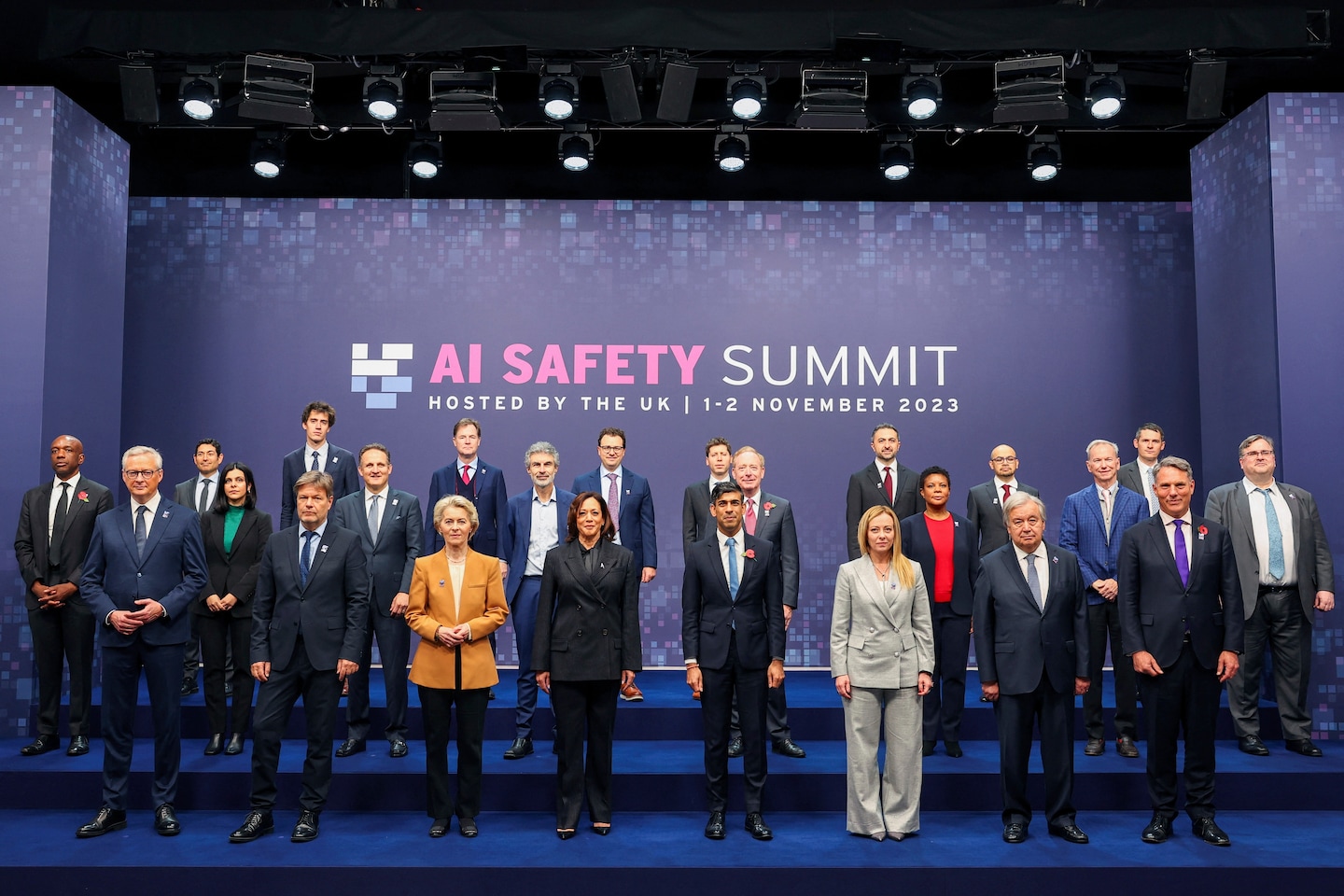Federal and Big Tech officials have reached an agreement on artificial intelligence after extensive high-level meetings and discussions, recognizing the need for guidelines for this potentially groundbreaking technology. Despite this, there are skeptics in Silicon Valley.
A growing faction of tech leaders in Silicon Valley is pushing back, expressing concerns that AI regulations could stifle competition in this critical emerging field. This group includes influential venture capitalists, CEOs of major software companies, and proponents of open-source technology.
Critics view the willingness of industry giants like Google, Microsoft, and OpenAI, the creator of ChatGPT, to embrace regulation as a strategic move to solidify their positions as industry leaders, potentially limiting opportunities for smaller players. The executive order signed by President Biden last year to establish evaluation and approval standards for AI models, particularly those powering “generative” tools like chatbots and image generators, further fueled apprehensions among these tech leaders.
Garry Tan, CEO of Y Combinator, a startup incubator based in San Francisco known for nurturing companies like Airbnb and DoorDash in their early stages, emphasized the importance of avoiding premature favoritism towards certain companies through stringent regulations that only benefit large corporations. Tan stressed the need for broader inclusion of voices from smaller businesses in the ongoing discourse to promote competition and ensure the responsible deployment of AI technologies.
Notable AI startups such as Anthropic and OpenAI, closely tied to major tech players, have significantly profited from their investments. However, Martin Casado, a partner at venture capital firm Andreessen Horowitz, pointed out that these startups do not represent the diverse array of contributors in the AI industry. Casado highlighted that many AI specialists and entrepreneurs are primarily focused on their work rather than engaging in political debates.
Casado’s firm, along with prominent figures in the AI startup scene like Replit CEO Amjad Masad and Mistral’s Arthur Mensch, as well as technology veterans like Shopify CEO Tobi Lütke, expressed concerns to Biden about the potential negative impacts of AI regulations on innovation and competition. They cautioned that imposing reporting requirements on AI firms could hinder technological advancements and affect the open-source community.
The rapid proliferation of AI technologies, exemplified by OpenAI’s ChatGPT release, has prompted legislative discussions and proposals at both federal and state levels. Countries like Britain and the European Union are also revisiting their AI regulations to adapt to this evolving landscape.
While major AI companies acknowledge the risks associated with AI technologies and express support for regulations to mitigate these risks, they also recognize the importance of shaping regulatory frameworks to align with industry needs. Engaging in regulatory discussions allows these industry leaders to influence the development of rules governing AI technologies.
OpenAI CEO Sam Altman underscored the potential consequences of AI failures during a legislative hearing, emphasizing the need for proactive regulation. Senator Majority Leader Charles E. Schumer echoed the sentiment, advocating for early AI management to avoid the pitfalls experienced with social media regulation.
The debate around AI regulation reflects a broader tension between established tech giants and smaller players in the industry. The endorsement of governmental oversight by state representatives at the U.K.-hosted AI Safety Summit highlights the growing consensus on the need for external scrutiny of AI models to ensure public safety and accountability.
As the regulatory landscape evolves, concerns persist among AI developers about the potential impact of stringent regulations on innovation and competition. The balance between regulatory oversight and fostering technological advancement remains a key challenge for policymakers and industry stakeholders alike.






